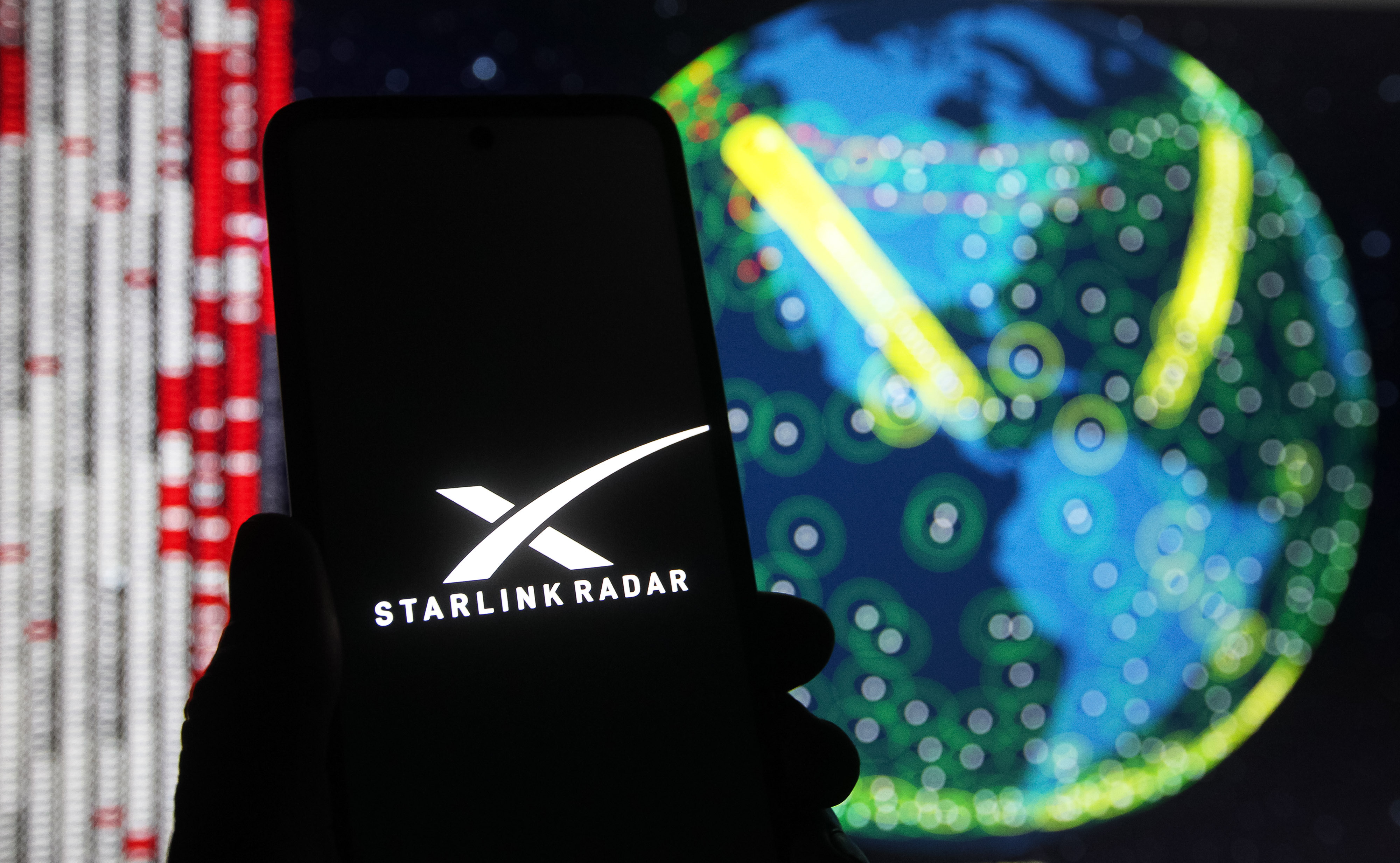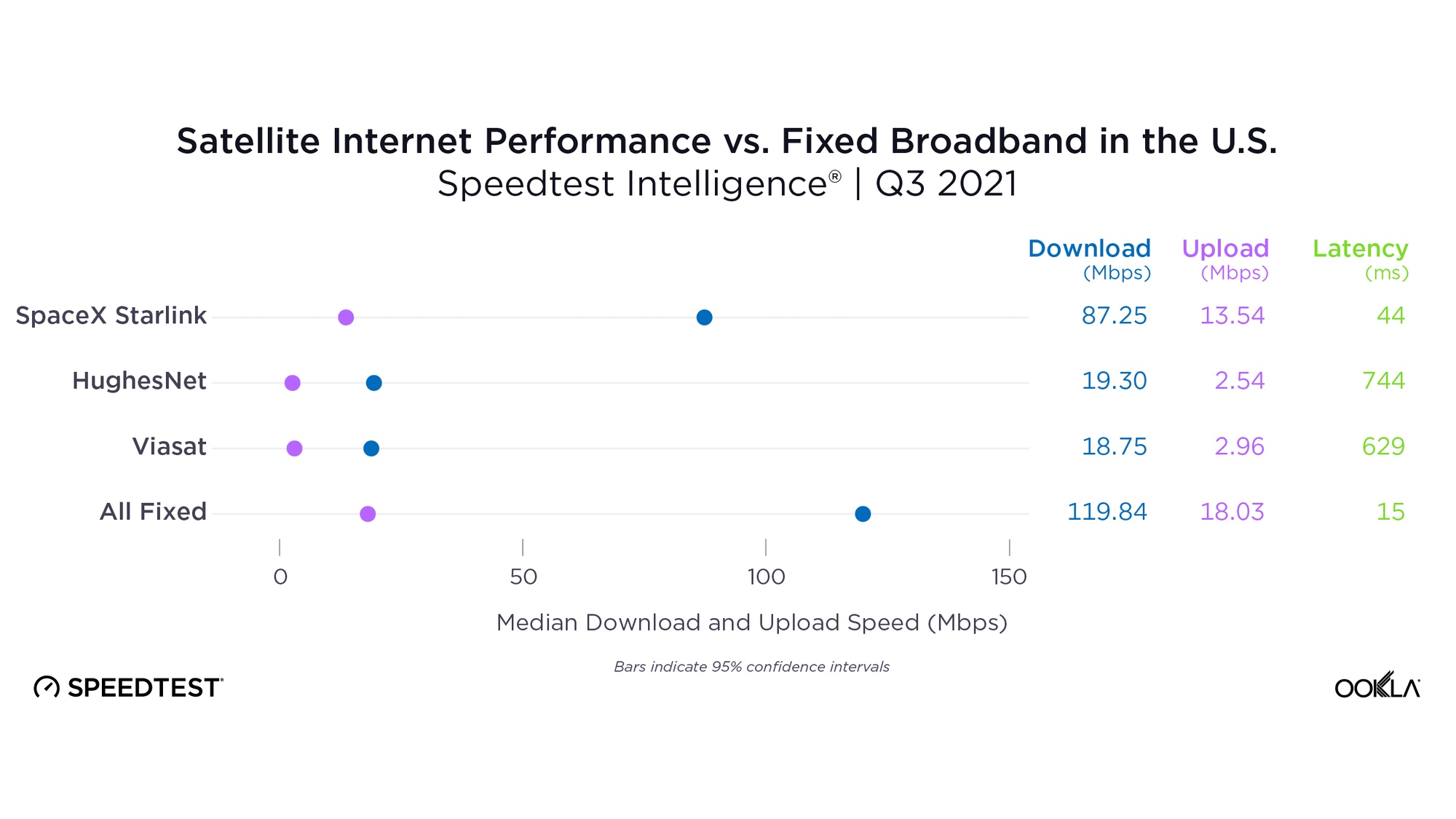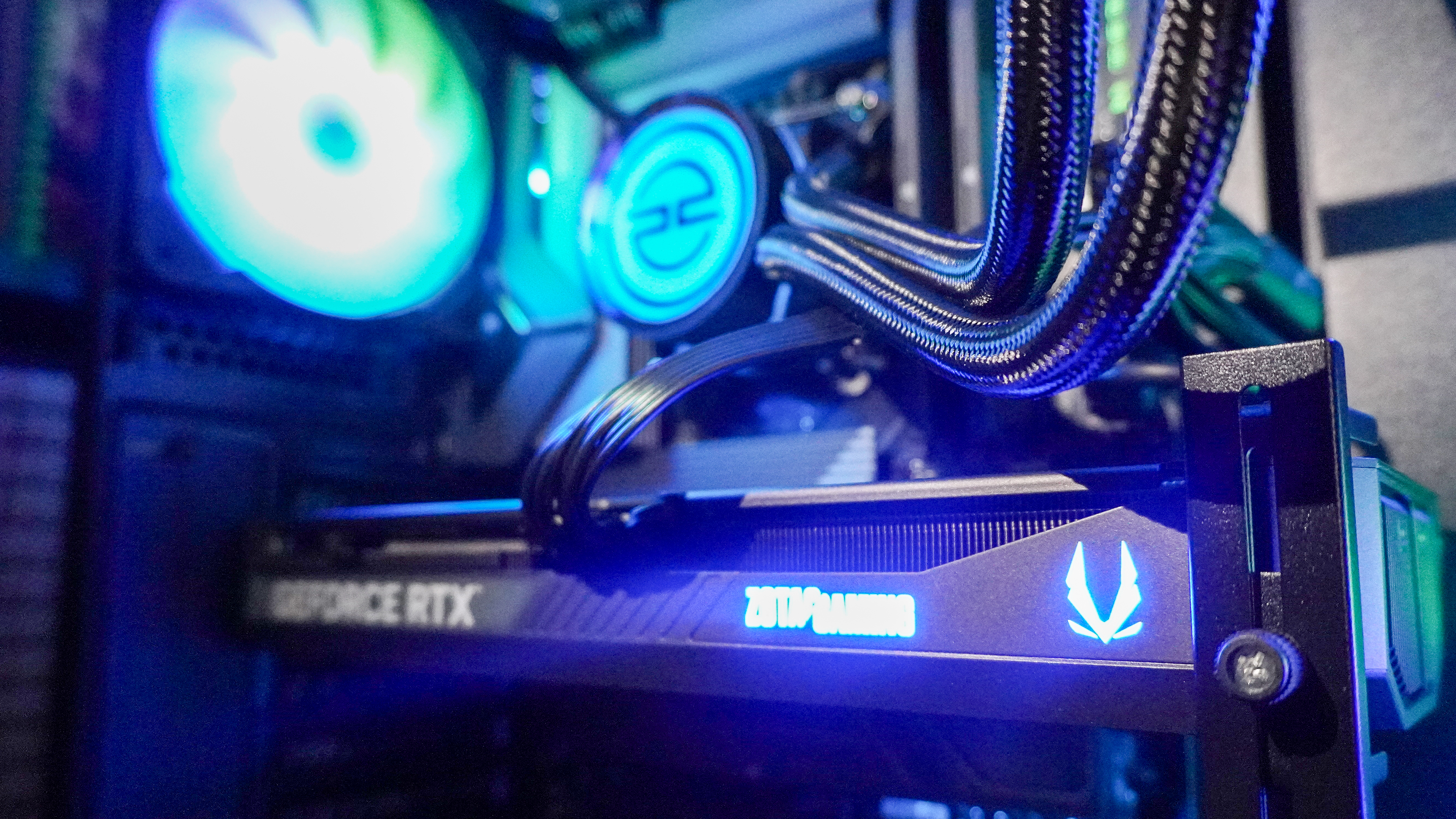
Starlink, Elon Musk's satellite internet company, seems to be hitting a speed plateau, according to data collected by one of the biggest speed test websites on the internet.
Ookla, known for running SpeedTest.net, says that Starlink speeds didn't increase during the third quarter of this year. In some areas, speeds began to wane.
According to Ookla, median speeds between Q2 to Q3 2021 saw a decrease from 97.23 to 87.25 Mbps. Ookla speculates that this could be a symptom of Starlink adding new customers to its satellite network, which may eat away at available bandwidth.
At the very least, median upload speed largely stayed flat between Q2 to Q3 of 2021, going from 13.89 to 13.54. (Update: Starlink speeds dramatically increased between the Q1 2021 and Q1 2022)
Ookla's data did find that Starlink speeds still vary greatly, county by county. In Santa Fe County, New Mexico, the fastest median download speed was 146.58 Mbps whereas the slowest median download speed was in Drummond Township, Michigan at 46.63 Mpbs.
Although, those with cash to burn might want to consider Starlink Premium, a $500 monthly service that requires a $2,500 dish. At least these users can expect speeds of up to 500 Mbps.

Still, any dips in Starlink's performance should be viewed in context with the overall satellite internet market. Competitors HughesNet and Viasat had median download speeds of 19.30 and 18.75 Mbps respectively. That means Starlink's slowest speed is still more than double HughesNet and Viasat's median. For rural communities, to get speeds that touch 100 Mbps is a great relief.
Sign up to get the BEST of Tom's Guide direct to your inbox.
Get instant access to breaking news, the hottest reviews, great deals and helpful tips.
Moving away from the U.S., in Australia, a country with middling internet infrastructure, Starlink greatly outperformed fixed internet. Starlink had a median download speed of 138.12 Mbps, far greater than the 51.17 on offer from traditional internet service providers.
For Starlink customers that are seeing slower speeds, don't worry. SpaceX recently launched 52 satellites from its California base. Currently, the low-Earth orbit satellite internet constellation accounts for a little more than 1,600 satellites. While that is a lot, it's still far shy of the 12,000 SpaceX has planned. As more satellites go into orbit, the better the internet should be.
Imad is currently Senior Google and Internet Culture reporter for CNET, but until recently was News Editor at Tom's Guide. Hailing from Texas, Imad started his journalism career in 2013 and has amassed bylines with the New York Times, the Washington Post, ESPN, Wired and Men's Health Magazine, among others. Outside of work, you can find him sitting blankly in front of a Word document trying desperately to write the first pages of a new book.

